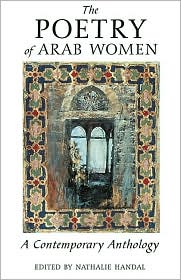A Red Cherry on a White-tiled Floor: Selected Poems
“Maram al-Massri comes as a shock. She writes about all the taboo subjects—physical passion, faithlessness, adultery, loneliness, despair—with candor and intensity that would mark her out even to Westerners.”—The Times (London)\ “Her direct, unadorned writing, with its emphasis on the quotidian, and utilization of simple, almost child-like metaphors, contrast sharply with the conventions of traditional Arabic love poetry.”—Banipal: Magazine of Modern Arab Literature\ "The spare emotive verse...
Search in google:
First American publication of Syrian poet Maram al-Massri, presented in a bilingual Arabic-English edition.Publishers WeeklyShort, vivid, frankly erotic and remarkable for their emotional intelligence, Syrian poet Al-Massri's poems are as startling in English as they must have been to their first Arabic readers. Her acute renditions of pain and pleasure are more than a bit suggestive of Catullus-or rather a female Catullus, whose mix of the familial and the bodily, of worries about motherhood with expression of lust, first shock, then draw admiration for their concise artistry: "Before you fell asleep," a one-sentence poem asks a lover or husband, "why did you forget/ to switch off/ the lamp/ of my burning desires?" A lover appears "in his old cotton clothes/ and his torn socks," "the way the need for love/ strips naked." A woman with unconsummated yearnings compares herself to a fruit tree the birds leave alone. A happier woman, at the end of a tryst, will "search for pieces/ of my clothes/ to wear me," leaving only "tears/ of pleasure" behind. Mattawa renders the traditional Middle Eastern forms of Al-Massri's lyric sequences into brief English free verse. The results sound just familiar enough to draw Americans in, just strange enough to keep them in memory. (Nov.)Copyright 2007 Reed Business Information
\ Publishers WeeklyShort, vivid, frankly erotic and remarkable for their emotional intelligence, Syrian poet Al-Massri's poems are as startling in English as they must have been to their first Arabic readers. Her acute renditions of pain and pleasure are more than a bit suggestive of Catullus-or rather a female Catullus, whose mix of the familial and the bodily, of worries about motherhood with expression of lust, first shock, then draw admiration for their concise artistry: "Before you fell asleep," a one-sentence poem asks a lover or husband, "why did you forget/ to switch off/ the lamp/ of my burning desires?" A lover appears "in his old cotton clothes/ and his torn socks," "the way the need for love/ strips naked." A woman with unconsummated yearnings compares herself to a fruit tree the birds leave alone. A happier woman, at the end of a tryst, will "search for pieces/ of my clothes/ to wear me," leaving only "tears/ of pleasure" behind. Mattawa renders the traditional Middle Eastern forms of Al-Massri's lyric sequences into brief English free verse. The results sound just familiar enough to draw Americans in, just strange enough to keep them in memory. (Nov.)\ Copyright 2007 Reed Business Information\ \ \ \ \ Library JournalIn this tender Arabic/English collection, Mattawa carefully renders over 160 selected poems from al-Massri's A Red Cherry on a White-Tiled Floorand I Look to You. Clear, direct, and conversational in tone, these short works peer through the window of love and examine private passion. "What/beautiful crime/have I committed?" one lover asks, then replies with ardor, "I enjoyed/a body." Poems focus on physicality (touches, kisses, burning caresses) and lust ("With my delicious fruit/I light/the way leading to me"); here readers will find seduction, courtship, lonely hearts ("Melancholy,/a crazed cow,/devours/the green and dry/shoots of my ecstasy"), and failing marriages ("a man and a woman,/boredom their third companion"). Al-Massri's characters experience the duality of love. Women feast in their ecstasy, then later carry with them the pungent "smell of regret," while once potent men suddenly find themselves disquieted and "wound up in illusions." This translation introduces American audiences to an important new voice in Syrian poetry. Recommended for all libraries.\ —Miriam Tuliao\ \ \


